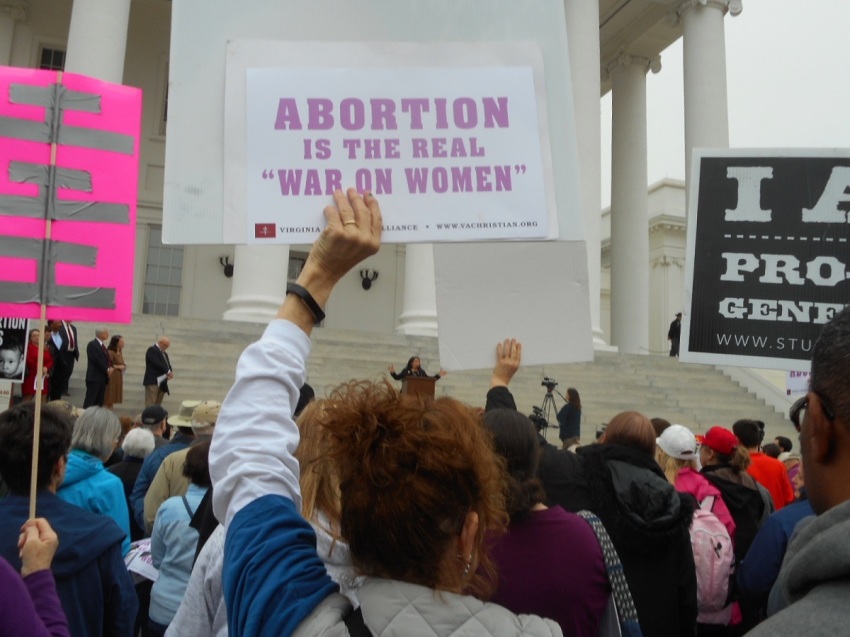Abortionist LeRoy Carhart sued for malpractice over injuries sustained during late-term abortion

Controversial late-term abortion provider Dr. LeRoy Carhart is being sued by a woman over injuries she received during an abortion procedure done at his Maryland clinic.
Ashley P. Norris of Virginia filed a complaint on Sept. 23 in a Maryland federal court against Carhart, Dr. Elizabeth Swallow, and AbortionClinics.org, also known as Clinics for Abortion and Reproductive Excellence.

According to the legal filing, Norris was 25 weeks pregnant when she had an abortion at Carhart’s Bethesda facility in May 2020.
The abortion took place over two days.
On the first day, Norris received “oral medications and a vaginal insertion of a seaweed extract known as ‘laminaria’ designed to cause cervical dilation.” At her second appointment, “additional oral medications were given to further dilate the uterus.”
The complaint alleges that while “the dilation of the plaintiff’s uterus had not proceeded as expected,” she was placed under anesthesia to undergo an abortion anyway.
However, Norris experienced complications during the procedure, including severe bleeding and a dangerous drop in blood pressure, prompting her to be rushed to a nearby hospital.
Norris accuses Carhart of medical negligence and negligence on informed consent, stating that because of the botched abortion attempt, she has multiple internal injuries, including permanent damage to her bowel and uterus.
The Christian Post reached out to AbortionClinics.org for comment. A representative of the clinic said Monday that the organization could not respond by press time.
Maryland Right to Life Legislative Director Laura Bogley-Knickman told CP that the federal court should “carefully consider the merits of this lawsuit and provide [an] appropriate judicial remedy which should include civil liability of the abortionist.”
“Abortion laws are designed to protect abortionists from the harm they cause to women and children. But in 2012, Maryland adopted regulations to ensure that abortionists and abortion clinics meet the same health and safety standards as other outpatient centers,” said Bogley-Knickman.
“We respectfully urge the court to properly apply the intent of those safety regulations in the present case and ensure they are given the full force and effect of the law.”
Although MDRTL is not involved in the lawsuit, Bogley-Knickman said that they have “facilitated cooperation between other parties who are pursuing [an] investigation of the defendant for multiple incidents involving the injury or death of women.”
“Maryland is one of three states that shields abortionists from liability by waiving annual reporting requirements,” she continued.
“Clinic regulations currently are report driven only and the Maryland Department of Health Office of Health Care Quality has failed to provide sufficient oversight and regulation of abortion clinics in Maryland as evidenced by the current complaint.”
One of the few providers of late-term abortion procedures in the U.S., Carhart operates clinics in Maryland and Nebraska. He has been a controversial public figure because of his pro-choice advocacy and practice.
In 2016, for example, the U.S. House of Representatives Select Panel on Infant Lives subpoenaed Carhart over allegations that he may have profited from the sale of aborted baby body parts and for multiple reports of women who sought abortions from him having to go to the hospital.
“Public reports indicate at least five women have been sent to the hospital since December while seeking an abortion in this clinic,” said then-Rep. Marsha Blackburn, R-Tenn., in a statement at the time.
In response to the 2016 subpoena, a group of Democrat members of Congress sent a letter to then-House Speaker Paul Ryan, R-Wis., arguing that Carhart was the victim of a “witch hunt.”
“Republicans have not shared with Democrats any objective basis for targeting this individual, who has been the subject of anti-abortion violence for decades, including a 1991 fire that destroyed his family farm, killing his dog, cat, and 17 horses in claimed retaliation for the care that he provides for women in this country,” read the letter, in part.
Additionally, Carhart sued the state of Nebraska over its ban on partial-birth abortion. The case of Stenberg v. Carhart went to the U.S. Supreme Court in 2000, which ruled 5-4 that the Nebraska law was unconstitutional.
When the Partial-Birth Abortion Ban Act was passed at the federal level, Carhart again challenged it in court. The case of Gonzales v. Carhart went all the way to the Supreme Court. In 2007, the justices upheld the Partial-Birth Abortion Ban Act in a 5-4 decision.



























